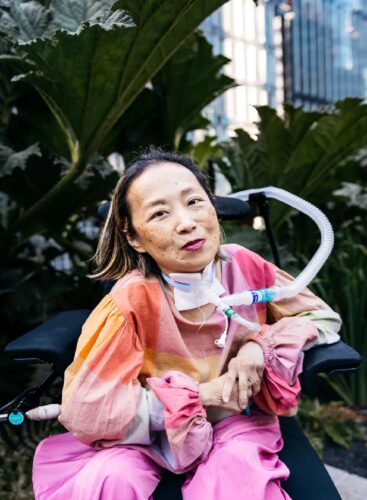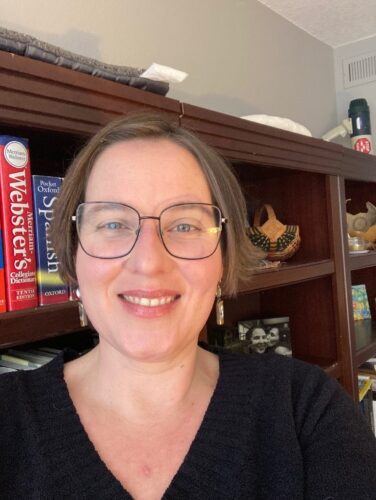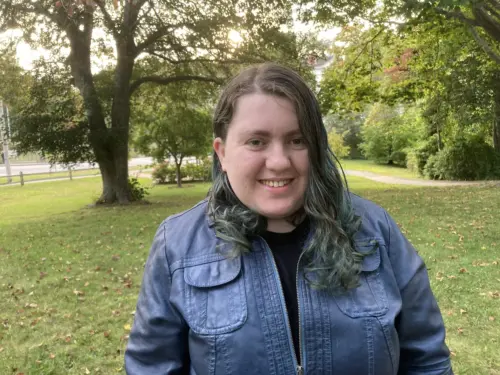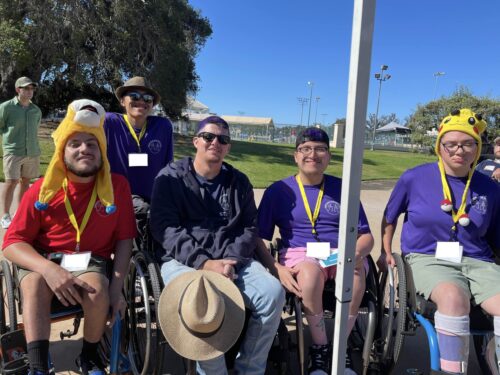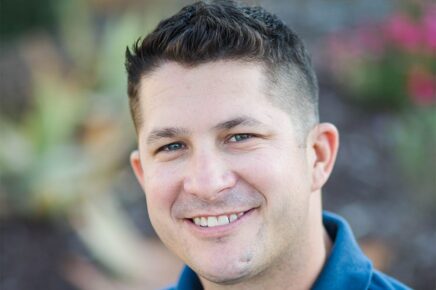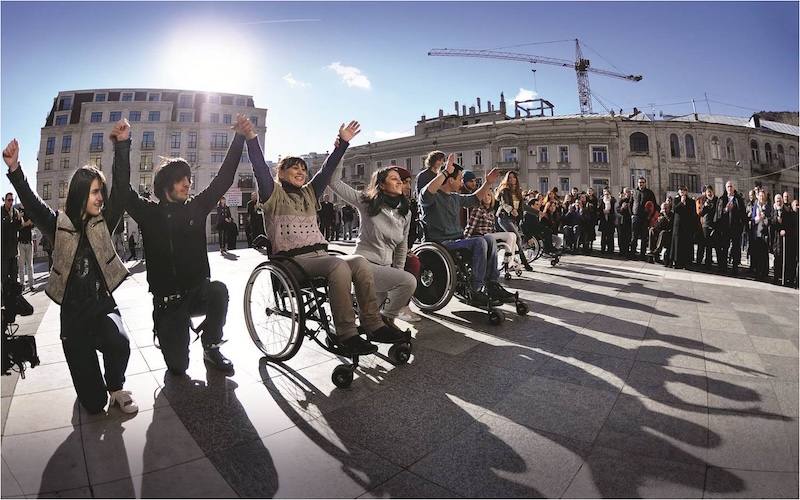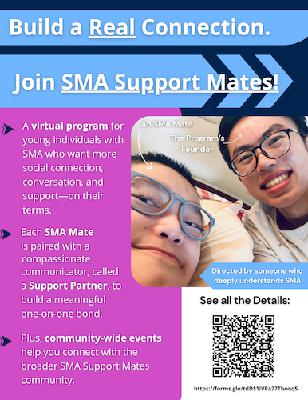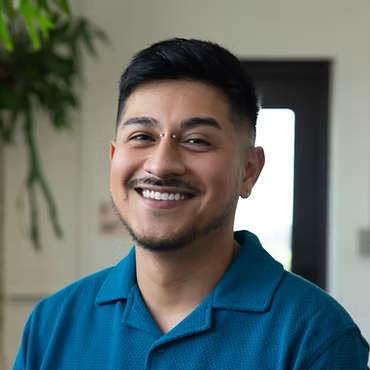Discover KPFA - Pushing Limits
KPFA - Pushing Limits

698 Episodes
Reverse
Record scratch — your favorite DJ is back on the turntables!
Join Denny Daughters on Pushing Limits this Friday for another edition of Musicians With All Types of Disabilities, a spotlight on artists whose talent and impact span genres and generations. This time we feature performers connected to blindness, dyslexia, multiple sclerosis, and bulimia nervosa.
Denny digs deep into his music collection to bring you a half hour of standout tracks from the 1970s through the 1990s — music, history, and disability culture all in one show.
Tune in and turn it up.
This program is hosted and produced by Denny Daughters.
The post Disabled Musicians: 70’s – 90’s – Pushing Limits – January 30, 2026 appeared first on KPFA.
How do new technologies, shifting laws, and global politics affect the lives of disabled people — sometimes in ways we don’t see coming?
Pushing Limits continues its coverage of breaking developments in the disability community. This week, we look at the growing role of artificial intelligence in schools, state budget concerns, and new disability-related laws. Also under the microscope is the lingering impact of Trump-era policies. Plus, don’t miss a sobering look at why it can be especially dangerous to be disabled in Myanmar.
This program is co-hosted by Talia Thompson Mariano and producer Eddie Ytuarte.
Stories in this program with links for further exploration:
1. Teachers use AI for IEPs (Individualized Education Programs)
https://cdt.org/insights/from-personalized-to-programmed-the-use-of-generative-ai-to-develop-individualized-education-programs-for-students-with-disabilities/?ref=disabilitydebrief.org
2. Sign language in Britain
https://bda.org.uk/bsl-is-not-for-sale/?ref=disabilitydebrief.org
3. Disability in Myanmar
https://www.ohchr.org/en/documents/thematic-reports/ahrc61crp1-hidden-crisis-disability-rights-post-coup-myanmar-advance
4. State summary of some legislation plus budget
https://www.disabilityrightsca.org/public-policy/2025-end-of-session-wrap-up
5. State cuts disaster aid
https://laist.com/news/climate-environment/state-cuts-program-for-people-with-disabilities-in-disasters-advocates-alarmed
6. Trumps attack on disability attorneys
https://www.usatoday.com/story/news/politics/2025/12/14/americans-disabilities-trump-budget-cuts/87686476007/
7. Transpersons
https://dredf.org/protect-trans-rights/
8. “Life After” film
For a full program transcription, click here
The post Shifting Ground: Disability, Policy, and Power – Pushing Limits – January 23, 2026 appeared first on KPFA.
What defined disability in the headlines this past year — progress, controversy, or both?
Bob Kafka
This Friday, Pushing Limits looks back at some of the most talked-about moments in the disability world. From a clergyman seeking a federal lawsuit after preaching that disabled people shouldn’t marry, to the mixed bag of disability policy coming out of California’s state government. And we’ll dig into a debate that sparked plenty of opinions: should pregnant women be allowed to park in blue zones?
Join Pushing Limits for a year-end wrap-up you won’t want to miss.
This program is produced by Adrienne Lauby and hosted by Talia Mariano and Eddie Ytuarte.
Stories in this program with links for further exploration:
1. Conditions for Disabled People in Venezuela
Special report on humanitarian needs of persons in situations of disability in Venezuela – July 2025 – Venezuela (Bolivarian Republic of)
Venezuela – Disability – Expat Focus
https://www.internationaldisabilityalliance.org/countries/VEN
2. Diminished Democracy is Diminished Disability Justice
https://www.disabilitydebrief.org/debrief/this-should-not-be-happening/
3. Should Pregnant Women Use Disabled Parking
https://www.handicapmd.com/handicap-parking-blog/legal-rights-for-pregnant-women-seeking-disabled-parking-permits
4. ICE Raid near Day Program for Developmentally Disabled Adults
https://thearcca.org/ice-raid-near-the-arc-of-ventura-county-day-program-in-oxnard-raises-urgent-concerns-for-disability-safety/
5. Federal court nominee says disabled people should not marry
https://www.motherjones.com/politics/2025/12/indiana-southern-district-federal-judge-nominee-justin-olson-disabled-people-marriage-benefits-cancellation-medicaid-ssi/
6. Autistic Barbie Doll
https://www.timesnownews.com/health/why-mattels-first-ever-barbie-with-autism-is-sparking-global-conversation-on-inclusion-article-153439447
7. Alice Wong and Bob Kafka – Rest In Power
Disability Vulnerability: https://disabilityvisibilityproject.com/book/disability-vulnerability-spring-2026/
https://www.theguardian.com/us-news/2025/nov/15/alice-wong-disability-rights-activist-dies-aged-51
https://nursing.ucsf.edu/news/memory-alice-wong-disability-rights-activist-writer-and-ucsf-changemaker
https://time.com/7336976/disability-justice-alice-wong/
Pushing Limits Interview with Alice Wong
https://kpfa.org/episode/pushing-limits-july-15-2016/
Personal story ~ meeting Bob Kafka: https://adapt.org/1984-washington-bob-kafka/
Obituary: https://www.kut.org/politics/2025-12-29/bob-kafka-austin-disability-rights-advocate-dies-tx
Bob’s home chapter of ADAPT celebrates his passing: https://adaptoftexas.org/
Pushing Limits interview with Bob Kafka prior to the passage of Obama Care (Affordable Care Act): https://kpfa.org/episode/58204/
8. 2025 State wrap-up–new laws and budget
2025 End of Session Wrap Up | Disability Rights California
9. Teachers use AI for IEPs (Individualized Education Programs)
https://cdt.org/insights/from-personalized-to-programmed-the-use-of-generative-ai-to-develop-individualized-education-programs-for-students-with-disabilities/?ref=disabilitydebrief.org
10. Sign Language Problems with AI
From the British Deaf Association though Disability Debrief
https://bda.org.uk/bsl-is-not-for-sale/?ref=disabilitydebrief.org
11. “Life After,” movie. A Disabled Filmmaker Looks at Physician-Assisted Suicide (Free)
Independent Lens, PBS
https://www.pbs.org/independentlens/documentaries/life-after/
https://www.youtube.com/watch?v=OCH-51YqMMs
For a transcription of the entire program, click here
Alice Wong
The post Political Wrap-Up – Pushing Limits – January 16, 2026 appeared first on KPFA.
What happens when disabled artists, activists, and scholars finally have a space of their own?
Pushing Limits radio presents its first program featuring the San Francisco Disability Cultural Center. This new venue will host a wide range of activities—from art exhibits and “café crip check-ins” to a collective quilt and a space for disabled and disgruntled academics to air it all out.
Plus, the renowned Superfest Disabled Film Festival is now under the auspices of the San Francisco Disability Cultural Center, marking a major new chapter for disability culture in the Bay Area. Tune in so you don’t miss any details!
This program is hosted and produced by Eddie Ytuarte.
For a transcription of the entire program, click here
The post Claiming Space: SF Disability Cultural Center – Pushing Limits – January 9, 2026 appeared first on KPFA.
Andrea Jones Klein
What happens when the fight for justice isn’t accessible to everyone — even the people doing the organizing? And how often do we overlook disabilities we can’t see, but that profoundly shape who gets to show up?
Join Pushing Limits this Friday as we talk with social justice organizer Andrea Jones Klein. For more than five years, Andrea has worked at the intersections of climate justice, political liberation, and health equity — all while living with chemical intolerance.
In this conversation, Andrea discusses the ableism she encounters in organizing spaces, explains what chemical intolerance is, and shares simple, practical steps people can take to make public spaces more accessible for those with her disability.
To get in contact with Andrea, you can e-mail her at andreajonesklein@gmail.com
This program was produced by Jacob Lesner-Buxton. It was hosted and edited by Dominick Trevethan.
For a full transcription of this program, click here
The post Social Justice and Ableism – Pushing Limits – January 2, 2026 appeared first on KPFA.
What really happened behind the scenes at Pushing Limits in 2025?
In our end-of-the-year special, host Denny Daughters turns the questions on the Pushing Limits crew themselves. What did they love about this year? What did they learn? And what are they hoping for in the year to come?
But that’s not all! Don’t miss the montage of all the guests from last year. Plus, hidden in this special is a secret about how the year end montage was made—something we’ve never shared before.
Laugh, reflect, and uncover what you weren’t supposed to know. We’ll see you real soon!
This program was hosted and produced (all year long) by Denny Daughters.
The post 2025 in Review – Pushing Limits – December 26, 2025 appeared first on KPFA.
How do we build a city where seniors and disabled people don’t just survive, but actually thrive? And what does it take for an organization to stay ahead of the curve when so many in our community are struggling for housing, transportation, and basic dignity?
Shaya French
Join Pushing Limits as we sit down with Shaya French, Director of Organizing for Senior and Disability Action — a long-standing, progressive San Francisco organization often a step ahead of others serving the disability community.
We’ll explore SDA’s work on housing, transportation, health care, and its innovative anti-ICE organizing efforts.
And honestly… you’ve got to appreciate an organization whose goals include “to be creative and have fun.” Tune in for a lively and informative conversation.
If you’d like more info about Shaya and SDA, check out their website here
This program is hosted and produced by Eddie Ytuarte.
The post Organizing for Access – Senior and Disability Action – Pushing Limits – December 5, 2025 appeared first on KPFA.
How accessible is your daily commute, really? And when public transportation falls short, who’s out there fighting to fix it?
Join us on this week’s Pushing Limits as Denny Daughters interviews Warren Cushman, a systems change advocate with Community Resources for Independent Living (CRIL) in Hayward. Warren shares the work he’s doing with the Metropolitan Transportation Commission, as well as his advocacy with AC Transit and BART. We also dive into his efforts around housing justice and mental health support—two issues deeply intertwined with disability rights.
This show was hosted and edited by Denny Daughters.
For more information, contact CRIL at (510) 881-5743 or visit crilhayward.org.
You can reach Warren directly at warren.cushman@crilhayward.org
The post Disability Advocacy at the Local Level – Pushing Limits – November 28, 2025 appeared first on KPFA.
For most people, “the happiest place on earth” means Disneyland. But for the kids who attend Cottage Rehabilitation Hospital’s annual Junior Wheelchair Sports Camp, true magic happens somewhere else entirely—on the courts, fields, and pool deck of UC Santa Barbara’s Recreation Center.
Cynthia Muñoz
This week on Pushing Limits, we’re joined by counselors Cynthia Muñoz, who lives with cerebral palsy spastic diplegia, and Brian Rathfelder, who lives with a spinal cord injury. They share what it’s like to mentor kids navigating the same challenges they once faced, the behind-the-scenes hustle of creating a fully adaptive, sport-oriented day camp, and the unforgettable moments that make this community feel like a second family.
Tune in to discover why this one-week camp leaves a lifelong impact on everyone who rolls through its doors.
This program is hosted, edited, and produced by Dominick Trevethan.
Brian & Campers
The post Behind The Magic: Junior Wheelchair Sports Camp – Pushing Limits – November 21, 2025 appeared first on KPFA.
For many veterans, the hardest fight begins when they come home—navigating disability, trauma, and a system that too often turns its back on them.
For more than half a century, Swords to Plowshares has been serving and uplifting military veterans across the Bay Area. What began as a small grassroots effort to support Vietnam veterans—many of them living with disabilities and facing rejection from traditional institutions like the Veterans Administration—has grown into one of the nation’s leading veteran service organizations.
Elena Kim
This week on Pushing Limits, we spotlight Swords to Plowshares, a vital force for veteran rights and disability justice. Tune in as we explore their powerful history, ongoing advocacy, and how they continue to help veterans rebuild their lives with dignity and purpose with the help of Elena Kim, Chief Operating Officer.
As the former City of San Francisco’s Director of Veterans Services, human intelligence collector from 2005-2010 during Operation Iraqi Freedom, and Master Degree holder in Legislative Affairs, Elena oversees Swords to Plowshares‘ operations and programs.
This program is hosted and produced by Eddie Ytuarte.
The below image is from: https://www.flickr.com/people/37922399@N05
California Disabled Vets. December 2010 from Virginia State Parks staff
The post 50 Years Strong: Swords to Plowshares – Pushing Limits – November 14, 2025 appeared first on KPFA.
Seniors and people with disabilities both advocate for home care, housing, and transportation but, for decades, only lonely voices urged the two groups to collaborate. . . until now!
Our guests this Friday, Christina Mills and Cynde Soto, talk about the factors that contributed to the historical division between senior and disability advocates as well as current efforts to build solidarity between both groups.
Christina is the director of the California Association of Area Agencies on Aging (C4A). Her organization works to educate government leaders on aging and disability-related policy and to advocate for a stronger social safety net. Cynde is a board member of the Long Beach chapter of the Gray Panthers. Since 1974, the chapter has advocated for social and economic justice for those with disabilities and older adults.
Also, we will feature information about a free online drum circle for those with disabilities and allies. It will be on Friday, December 5th, at 1 PST on Zoom. To sign up, email jlesner@accesscentralcoast.org
This episode of Pushing Limits is hosted and edited by Denny Daughters. It was written and produced by Jacob Lesner-Buxton.
Relevant Resources
Long Beach Gray Panthers
California Association of Area Agencies on Aging (C4A)
The post Partnership Between Senior and Disability Advocates – Pushing Limits – November 7, 2025 appeared first on KPFA.
There’s been a haunting of political developments this month that directly impact the disability community—many deeply concerning. On this week’s Pushing Limits, co-producers Adrienne Lauby and Eddie Ytuarte break down the latest news and what it means for people living with disabilities nationwide. From more troubling moves by Trump to the silence of major disability organizations on the humanitarian crisis in Gaza, we dig into what’s being said—and what isn’t (insert Michael Jackson ”Thriller” laugh)!
This program is hosted and produced by Adrienne Lauby and Eddie Ytuarte.
The post Political Wrap-Up – Pushing Limits – October 31, 2025 appeared first on KPFA.
According to the World Health Organization (WHO), more than 15 million people worldwide are living with a spinal cord injury (SCI). These injuries are often sudden and life-changing—leaving many newly injured individuals overwhelmed and searching for support.
Andrew Skinner
On this week’s episode of Pushing Limits, we speak with Andrew Skinner, a man who decided to make that transition—from able-bodied to living with a spinal cord injury—a little easier for others traveling the same path. After his own injury in 2004, Andrew recognized a huge need for accessible equipment and resources for those newly injured.
What began as a small effort grew into the Triumph Foundation, now the largest disability-support nonprofit in Southern California. Since its founding in 2008, Triumph has impacted the lives of over 10,000 individuals with disabilities and provided more than $2 million in assistance to people facing financial hardship or gaps in medical coverage.
Tune in to hear Andrew’s story, the origins of Triumph Foundation, and how his work continues to empower the disability community today.
This program is hosted and produced by Bonnie Elliott. It was edited by Denny Daughters and Jacob Stanton. Additionally, recording assistance was provided by Jacob Lesner-Buxton.
The post ”Triumph“ for Spinal Cord Injured – Pushing Limits – October 24, 2025 appeared first on KPFA.
Did you know that between 150 and 300 people died weekly from COVID during the summer of 2025 in the U.S.? If you were watching the mainstream media or getting news from the White House, this data may surprise you. According to them, COVID is old news and in the rearview mirror of history.
However, today’s guest and disability advocate Polly Garcia is committed to educating their community about the virus. In the interview, she will address how the disability community has been impacted by COVID and the steps organizations can take to begin to address the community trauma that came with the pandemic. Polly has worked at the Centers for Disease Control and with various communities throughout the United States on issues related to public health. She is also an artist and mindfulness practitioner, who is getting her master’s in Negotiation, Conflict Resolution, & Peacebuilding.
Plus, stick around to the end to hear published poetry from M. S. Marquart.
This episode of Pushing Limits is produced by Jacob Lesner-Buxton and hosted and edited by Dominick Trevethan.
Links to information about today’s guests, information about COVID, and other public health issues created by Polly:
https://new.express.adobe.com/webpage/i8rSk4bmpsY6E
Polly’s company – Cosmovisión LLC
https://www.pollygarcia.com/
Poems by M. S. Marquart
https://sites.google.com/view/msmarquart
If you’d like to join Jacob’s monthly zoom meeting, Nothing Without Us, please reach out to him at jakeoaktown@gmail.com
The post Telling the Truth about COVID = Act of Resistance – Pushing Limits – October 17, 2025 appeared first on KPFA.
Executive actions, budget cuts, layoffs, and legislation—all within the first six months of the Trump administration—have severely curtailed disability rights and services, including access to Medicaid and the right to a free, appropriate public education.
That’s the finding of a recent report by the Center for American Progress, authored by Casey Doherty and Mia Ives-Rublee—who will be our live guests on Pushing Limits this week.
Co-producer and host Eddie Ytuarte comments: “The Trump regime is as intent on going after the disability community as it is on targeting non-White communities, universities, immigrants, and politically progressive people and organizations.” Don’t miss the rest of this important report reveal and discussion.
This program is produced and hosted by Eddie Ytuarte.
The post First Six Months – Lasting Damage – Pushing Limits – September 19, 2025 appeared first on KPFA.
This Friday on Pushing Limits – Join hosts Adrienne Lauby and Eddie Ytuarte as they dig into the latest in disability political news. Adrienne and Eddie bring their sharp analysis and on-the-ground knowledge to the stories that matter most to the disability community.
Don’t miss this timely and important conversation.
Photos with attributions and some context for each:
All from Flickr
1 Traveling Together
Disability Awareness Week, University of Illinois, Springfield Illinois
licensed as CC BY-NC-ND 2.0.
Traveling Together
Finger Pointing
https://www.californialaborsolutions.com/understanding-disability-discrimination/
Finger Pointing
“Together and Strong” USAID/Georgia’s Disability Advocacy Project
Participants in USAID/Georgia’s Disability Advocacy Project, implemented by the Coalition for Independent Living. Photo Credit: Lasha Kuprashvili, Coalition For Independent Living.
This photo was a winner in the Democracy, Human Rights and Governance photo contest.
Together and strong
The post Disability Politics From The Frontlines – Pushing Limits – September 12, 2025 appeared first on KPFA.
What if the only thing standing between you and a life-saving treatment was a price tag? For many living with Spinal Muscular Atrophy, that’s the reality—Spinraza, one of three FDA approved treatments for SMA costs about $425,000 per injection. Beyond the medical challenges, families face crushing financial barriers and questions of accessibility that differ drastically from country to country.
This week, we hear from brothers Derek and Justin. Justin lives with SMA type 1, and Derek—his brother and caregiver—has transformed their experience into a mission. He founded SOAR, a nonprofit dedicated to supporting the SMA community by providing community outreach and support. Under SOAR, Derek created the SMA Support Mates Program, which connects kids and young adults with older mentors who know exactly what it’s like to live with SMA.
Together, we talk about the urgent fight for affordable treatments, the stark contrast in accessibility between the U.S. and Vietnam, and how community can light the path forward.
This interview has been edited from an episode of The Disability Myth. If you would like to hear the longer program, check out the podcast episode on YouTube, Spotify, Apple Podcasts, and Amazon Music.
This program is hosted and produced by Dominick Trevethan.
Useful links:
SOAR’s official website: https://www.sma-awareness.com/
SMA Support Mate Program: https://forms.gle/tdDS1iVPa27tbooq5
SOAR Instagram: https://www.instagram.com/soar.sma_awareness?igsh=MWt4dTBmeW5uYzByYw==
SMA Support Mates Program
The post SOAR: Advocating for SMA – Pushing Limits – September 5, 2025 appeared first on KPFA.
What does it take to turn one of the nation’s largest disability communities into a
Ramiro Alvarez
political force? In Detroit, where more than 30% of residents live with a disability, grassroots organizing has led to a groundbreaking victory: $8.4 million in the city’s 2025 budget is now dedicated to disability services.
Join Pushing Limits this Friday as we continue our 2-part series on role model disability organizations. We talk with grassroots disability movement leader, Ramiro Alvarez, Communications Director at Detroit Disability Power. Listen in as we discuss how the organization built collective strength over eight years and won real change for the community.
This episode is hosted by Adrienne Lauby and produced by Jacob Lesner-Buxton with editing assistance by Dominick Trevethan and Denny Daughters.
The post Disability Advocacy in the Motor City – Pushing Limits – August 29, 2025 appeared first on KPFA.
Will our national system of Independent Living Centers be sabotaged or even destroyed during the Trump Administration? The Trump people have already made extreme cuts to community services, and most of our 403 local centers are heavily funded by the Federal Government. Will we end up funding our service centers with bake sales and lemonade stands?
Ami Hyten and Reyma McCoy Hyten, the co-directors of the Lois Curtis Center in Topeka, Kansas, have a better idea! Their organization is a physical and virtual hub for services, supports, and guidance that centers individuals with disabilities who experience marginalization within the disability community. They particularly include people of color, people who are homeless, and people who are system-involved. And, they don’t take any government funding. The Lois Curtis Center doesn’t have restrictions on who they can serve or the type of advocacy they engage in. Listen in as we talk to these two dynamic women about the benefits and downsides of working without Federal funding.
Speaking of providing information without government influence, we will also feature poets Jennifer Chassman-Brown and Marsha Cutting, who will speak honestly about living with a disability in 2025.
This episode is hosted by Dominick Trevethan. It was scripted and produced by Jacob Lesner-Buxton with editing assistance by Denny Daughters and Dominick Trevethan.
Also, here’s an excellent article about Federal cuts already in process!
The post Service Without The Feds – Pushing Limits – August 22, 2025 appeared first on KPFA.
A second investigation by Disability Rights California (DRC) has once again revealed inhumane conditions at a southern California ICE detention center imprisoning immigrants. The facility is called Adelanto Detention Center and is owned and operated by a private company: The GEO Group.
DRC investigators found the following conditions:
Inadequate Access to Medical and Mental Health Care and Disability Accommodations
Inadequate Access to Food, Water, and Clothes
Limited Connections with Family and Natural Supports
This investigation comes at a time when ICE faces mounting accusations of mismanaging detention facilities, contracting with private operators that cut corners, and wrongfully detaining many immigrants — including some U.S. citizens.
Joining us to shed light on the investigation is DRC attorney Adeyinka Glover, formerly a Clients’ Rights Advocate for people with intellectual and developmental disabilities. Adeyinka has also fought for housing rights, protection from domestic violence, guardianships, and environmental justice in the Central Valley. Her career is fueled by the belief that high-quality legal advocacy can help underserved populations including individuals, families, and communities not just survive, but thrive.
Adeyinka holds a J.D. from Thomas Jefferson School of Law and a B.A. in Political Science with a minor in Africana Studies from San Diego State University. When she’s not in the fight for justice, she enjoys traveling and exploring art in all its forms.
This program is produced and hosted by Eddie Ytuarte.
Adeyinka Glover
The post Disabled In ICE Detention Center – Pushing Limits – August 15, 2025 appeared first on KPFA.



